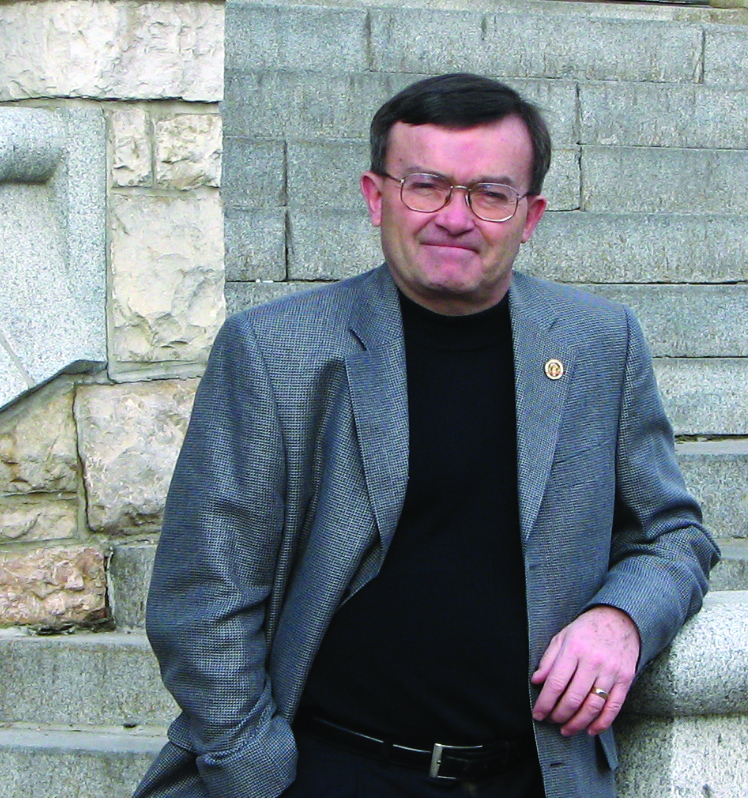Mentorship critical to research success
What makes for a successful university? According to researchers, it’s high-quality space, time, funding, and above all, advice and support.
By Colleen MacPherson "The big issues are, ‘I need a place to do my work, I need time and money to do it, and I need some mentoring and assistance in creating a path,'" says Jim Thornhill, who leads the research mentorship program on behalf of the Office of the Vice President Research and Office of the Provost and Vice President Academic.
"The big issues are, ‘I need a place to do my work, I need time and money to do it, and I need some mentoring and assistance in creating a path,'" says Jim Thornhill, who leads the research mentorship program on behalf of the Office of the Vice President Research and Office of the Provost and Vice President Academic.The program kicked off with a mentorship workshop Nov. 4 in Convocation Hall attended by more than 120 faculty members. The event offered sessions on subjects such as time management and the importance of gathering critical mass through research clusters and teams. Breakout sessions dealt with discipline-specific questions from faculty working in health research, social sciences, humanities and fine arts, as well as natural, biomedical and engineering sciences.
Thornhill explains the impetus for the program came from the research, scholarly, and artistic community itself. He chaired one of 20 commitment groups exploring research success and collaboration as part of the integrated planning process. The group consulted widely over the course of a year, surveying graduate students, post-docs, young and established faculty, and non-faculty. Two questions were paramount: What makes you successful as a researcher? and What makes the university successful as a research institution?
"The recommendations that came back to us were pretty consistent," Thornhill says. "They told us they need quality time, research start-up packages, proper infrastructure, grant development help, proper help with grad supervision. But they were almost unanimous in telling us there is a need for consistent and sustained research mentorship. New faculty in particular were reporting that they were not getting good, consistent advice."
Mentorship programs are common in business, government and industry as a way to foster and keep the best people, but it is uncharted territory for an academic institution. Thornhill explains that the thinking behind this has been that research is so specific that mentorship must be done at the department or college level.
That said, there is clearly a role for university administration to make mentorship a priority, including learning best practices from leading research-intensive universities. This role must also fit the university structure and culture, which suggests a collaborative approach.
"We think we can assist without being prescriptive," Thornhill says. "We can provide guidance and support while the colleges and departments develop their own ways of doing it."
To deliver this, the mentorship program is envisaged as a continuous process, with twice-yearly workshops to bring together faculty to share ideas and set priorities (the next one is scheduled for April 13, 2012). One nascent idea is to create a mentorship committee to work with each new faculty member, laying out goals and expectations in a five-year development plan. Each committee would be tailored to the faculty member, for example including department leadership and colleagues with similar expertise.
There is much at stake, says Thornhill. Ideally, faculty are hired for the long term, so it pays to invest time in the success of new faculty – defined as within five years of hire. Experienced faculty also have much to offer as mentors and can use the same services to expand and enhance their own networks.
"Our faculty are hired for three things. They bring us their knowledge and skill sets, and their ability to create knowledge. They disseminate that knowledge to our students. And, they have the ability to inspire our students that creating knowledge is something that is exciting and something to be pursued."
Support for this teacher-scholar model is already well advanced on the teaching side with programs offered through the Gwenna Moss Centre for Teaching Effectiveness, he explained. The hope is the new mentorship program will grow to offer the same level of support on the research, scholarship, and artistic work side of the equation.
Michael Robin is communications specialist in Research Communications.

